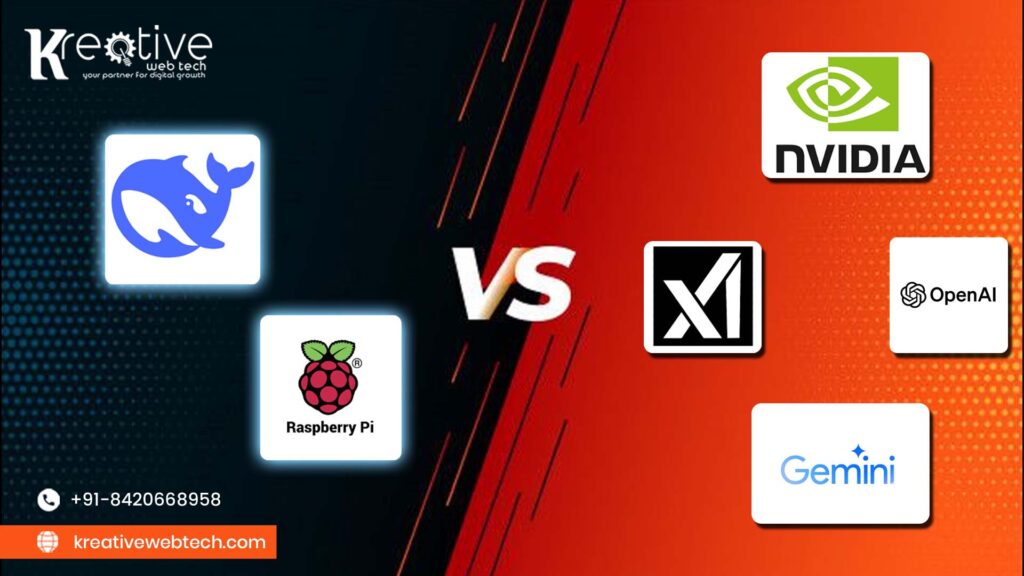DeepSeek AI: The Open-Source Revolution in AI Development World

DeepSeek AI, an open-source large language model (LLM) developed by a Chinese research team that is challenging the status quo. DeepSeek AI has made AI development more accessible, more cost-effective, and perhaps most importantly less dependent on the dominance of American corporations.
For years, artificial intelligence development has been dominated by U.S.-based tech giants like OpenAI, Google, and Anthropic. Their proprietary AI models ChatGPT, Gemini, and Claude have driven innovation but at a cost: high barriers to entry, limited transparency, and dependence on their cloud-based ecosystems.
With a model that can even run on a Raspberry Pi 5, DeepSeek AI is reshaping how businesses and independent developers approach AI. But is this just another competitor, or is it the beginning of an AI revolution?
Breaking the Monopoly: How DeepSeek AI Is Disrupting the Market
For years, OpenAI’s ChatGPT, Google’s Gemini, and Meta’s Llama have dictated the rules of AI development. Their models are powerful, but they come with strings attached subscription fees, API limitations, and heavy reliance on cloud-based GPUs. This control has created a monopoly-like ecosystem, where innovation is largely dictated by a handful of tech giants.
DeepSeek AI changes the game by offering an open-source LLM that is freely available to developers worldwide. This means companies and research institutions can train, fine-tune, and deploy their own AI models locally, rather than depending on cloud-based services owned by U.S. firms.
The impact?
- Tech stocks took a hit when DeepSeek announced its capabilities. Investors recognized that an open-source alternative could cut into the profits of companies that previously charged premium fees for AI access.
- More innovation, less dependency. Developers now have greater freedom to experiment, customize, and optimize AI models without the constraints imposed by proprietary platforms.
- Geopolitical AI competition is heating up. The dominance of U.S.-based AI firms is being challenged, shifting AI development power towards a more decentralized, global ecosystem.
Simply put, DeepSeek AI is democratizing AI development, putting advanced technology into the hands of more people and organizations than ever before.
DeepSeek AI vs. ChatGPT vs. Gemini: How Does It Compare?
With OpenAI’s ChatGPT 4, Google’s Gemini 1.5, and Meta’s Llama 3 leading the AI space, how does DeepSeek AI hold up? While it may not yet match the sheer power of proprietary models, its advantages lie elsewhere.
| Feature | DeepSeek AI | ChatGPT (OpenAI) | Gemini (Google) |
| Open Source | Yes | No | No |
| Runs Locally | Yes (Raspberry Pi 5 compatible) | No (Cloud-dependent) | No (Cloud-dependent) |
| Customization | Full control | Limited | Limited |
| AI Cost | Low (Self-hosted) | High (Subscription-based) | High (Subscription-based) |
| Multimodal Support | Limited (Still developing) | Yes (Advanced) | Yes (Advanced) |
While ChatGPT and Gemini excel in multimodal AI and advanced reasoning, they require cloud-based infrastructure, limiting accessibility for small developers and independent researchers. DeepSeek AI, on the other hand, gives users full control, enabling on-device AI that can be customized without ongoing API costs.
For businesses that need cost-efficient, locally hosted AI, DeepSeek is a game-changer.
Lowering AI Development Costs: The Raspberry Pi 5 Revolution
One of the most groundbreaking aspects of DeepSeek AI is its ability to run on lightweight hardware, including the Raspberry Pi 5.
Traditionally, AI models require expensive GPUs, often costing thousands of dollars to train and run. This has made AI adoption difficult for small businesses, researchers, and independent developers.
But DeepSeek AI lowers the barrier by enabling local AI processing on affordable hardware.
- Raspberry Pi 5 compatibility: While full-fledged AI models require powerful servers, optimized versions of DeepSeek can run on a Raspberry Pi 5, allowing developers to create low-cost AI applications.
- No cloud costs: Since DeepSeek doesn’t require expensive cloud subscriptions, businesses can deploy their own AI chatbots, automation tools, and research assistants without recurring fees.
- Decentralized AI development: With AI running locally, organizations can avoid data privacy risks associated with cloud-based models, keeping sensitive AI operations in-house.
This shift paves the way for a new generation of AI-powered robots, smart devices, and offline AI solutions that don’t require high-end infrastructure.
The Future: Standalone AI-Powered Robots Built on Open-Source AI
With AI models becoming lightweight and customizable, the next evolution is clear: autonomous AI-powered robots that don’t depend on the cloud.
For years, robotics has been held back by AI processing limitations, requiring either expensive on-device GPUs or constant internet connectivity. But DeepSeek AI changes this paradigm by enabling locally processed AI on low-cost hardware.
This could redefine industries, leading to:
- Affordable home automation robots that don’t require cloud access to function.
- Standalone industrial AI bots that analyze data and optimize workflows in real-time without external servers.
- Edge AI in healthcare, agriculture, and logistics, allowing AI models to run in remote locations without internet dependency.
DeepSeek AI isn’t just challenging OpenAI and Google, it’s laying the foundation for a future where AI can exist anywhere, on any device, without corporate oversight.
Conclusion: The AI Revolution Has Begun
DeepSeek AI isn’t just another AI model. It’s a philosophical shift in AI development. By breaking the monopoly of U.S. tech giants, lowering development costs, and enabling local AI deployment, it is paving the way for a more decentralized AI ecosystem.
In 2025 and beyond, the future of AI won’t be dictated by a handful of corporations, it will be built by developers, businesses, and innovators worldwide who now have the tools to create independent, cost-effective AI solutions.
The question is no longer whether DeepSeek AI can compete with OpenAI and Google. The question is how long before they adapt to this new open-source revolution?





